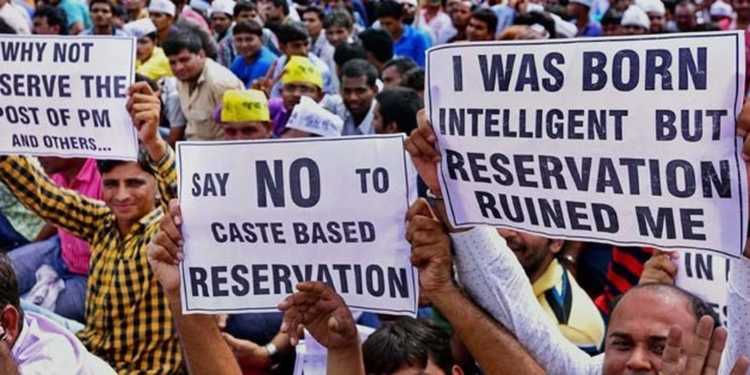On Wednesday, a five judge Constitution Bench of the Supreme Court in a landmark judgment with respect to granting quota in job promotions for SC/STs maintained that there is no need to reconsider its 2006 verdict in M. Nagraj case.
#Breaking | No reservation in promotions for SCs, STs in government jobs, rules #SupremeCourt
— Hindustan Times (@htTweets) September 26, 2018
In the 2006 judgment, the Supreme Court had observed that it is not compulsory for the state to provide reservation for SC/STs in the matter of promotions. The judgment further observed that however if the state did wish to employ its discretion, it is required to collect quantifiable data to prove backwardness of the class and inadequacy of representation of that class in government jobs, and also to collect facts about overall administrative efficiency. It also said that states are also required to make sure that the reservation does not exceed the limit of 50% ceiling.
The centre and various state governments had asked for the review of the verdict on several grounds. The matter was referred to constitution bench for reconsideration in November 2017. Accordingly, a Constitution Bench consisting of Chief Justice Dipak Misra, Justice Kurian Joseph, Justice R F Nariman, Justice S K Kaul and Justice Indu Malhotra was constituted with respect to this issue.
Attorney General K K Venugopal, appearing for the Centre, had asked for the reconsideration of the Nagaraj judgment, saying that it was impossible to implement. He argued strongly in favor of providing quota to SC and ST employees, claiming that there was a presumption of backwardness in the favor of SC/ST employees. He also said that SC and ST communities are victims of caste discrimination and the stigma of caste is attached to them despite the fact that some of them have attained prosperity.
During the hearing, Rakesh Dwivedi- representing those who were opposing quota in promotions- maintained that no reservation should be provided in promotions for higher services as the presumption of backwardness of SC and ST employees “vanishes” once they enter in government service. He also said that the situations have changed a lot since the Constitution came to existence. He maintained that social stigma had disappeared to large extent. Rakesh Dwivedi cited many examples to prove his point. He said Dalits had become President and Chief Justice of the country.
According to an Indian Express report, before reserving its verdict, the apex court underlined the need for “quantifiable data” in order to determine the backwardness of SC and ST to provide reservation in promotions. The Chief Justice of India Dipak Misra said, “Quantifiable data, in our view, as a basis is unavoidable.” The CJI also highlighted the fact that no state had prepared the “quantifiable data” despite the fact that M. Nagaraj judgment asked them to do so.
























